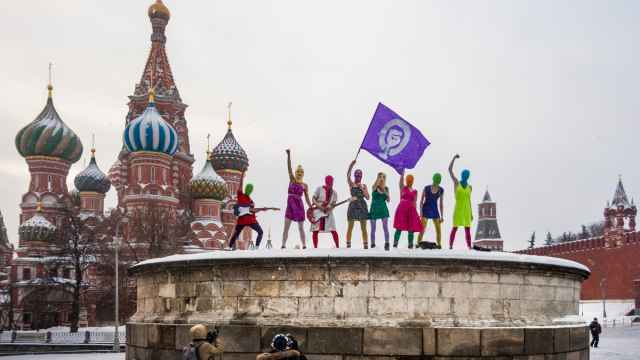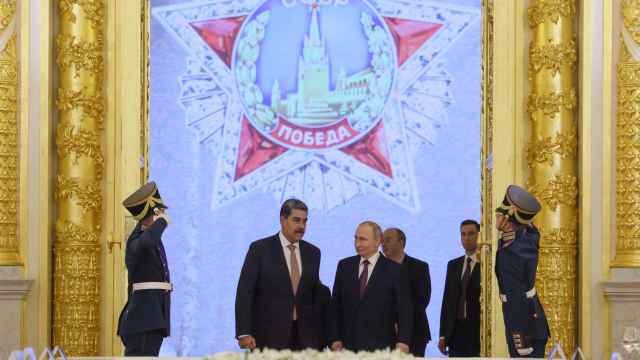The United Arab Emirates was the first Arab monarchy to provide assistance for the "corrective revolution" taking place in Egypt. The Emirates will reportedly provide a gift of $1 billion and an interest-free loan of another $2 billion. Reports also indicate that Saudi Arabia will offer a similar sum shortly.
The Sunni monarchies in the Persian Gulf are hoping to end the political instability in Egypt, the world's largest Arab country. This is especially important considering the increasing opposition of Sunni countries toward Iran over the Syrian conflict.
From the very beginning, the ruling families in the Emirates and Saudi Arabia were not happy about the Muslim Brotherhood coming to power in Egypt. That might seem paradoxical at first, considering that the system of government in the United Arab Emirates and Saudi Arabia is largely based on Sharia law and the state endorsement of religion, seemingly good reason to have common ground with the Muslim Brotherhood. But the situation is not that simple. The problem is that the Persian Gulf monarchies have long viewed the presence of Muslim Brotherhood "branches" in almost all of the Arab countries as a potential threat to their regimes.
In Arab monarchies, it is easier to stage a revolution under the banner of Islam than to chant secular, liberal and pro-Western slogans. Emboldened by their victory in Egypt after decades of being persecuted by the regime of Hosni Mubarak, the Muslim Brotherhood has begun to cast itself as the dominant political force in the region. Thus, the Muslim Brotherhood has become a rival of the Arab monarchies both in terms of politics and religion.
Now the monarchial families face a threatening unknown: Where is the Muslim Brotherhood, with its enormous experience in underground activity, leading the Sunni people? Sometimes they are actually likely to be more tolerant and conciliatory to Iran than the monarchies are.
There is one area, however, where the monarchies and the Muslim Brotherhood are aligned: They both support Syrian rebels in the battle against the regime of Bashar Assad.
Judging from events, the Persian Gulf royal families are concerned that the Muslim Brotherhood might one day gain dominance in the countries that have been hit by the Arab Spring. They do not consider that scenario a guarantee of stability, especially with regard to their own rule.
What form of rule do they consider most attractive for those states? One option is a strongman approach, such as the military rule of former Tunisian dictator Zine el-Abidine Ben Ali. A second option, as strange as it might seem, is a system somewhat resembling a democracy, in which the influence of the Muslim Brotherhood would be held in check by other competing parties and groups. Not surprisingly, former Yemeni President Ali Abdullah Saleh and Ben Ali are both hiding out in Saudi Arabia.
Thus, events in the region disprove the conspiracy theory that is so popular among Russian politicians and pro-Kremlin analysts that the upheavals in the Arab Spring countries were provoked by either the U.S. or Persian Gulf monarchies, particularly Saudi Arabia and Qatar. It is true that these two countries have influenced events in the region but only with the goal of achieving stability and protecting their own rule. At the end of the day, the monarchies are concerned about a powerful and expanding Muslim Brotherhood, and this dominates their policy toward Egypt and other countries. For this reason alone, it is unlikely that Persian Gulf monarchies engineered the Arab Spring revolutions in Yemen, Tunisia, Egypt, Libya and Syria.
Alexander Shumilin is the director of the Center for the Analysis of Middle East Conflicts at the Institute for U.S. and Canadian Studies at the Russian Academy of Sciences.
A Message from The Moscow Times:
Dear readers,
We are facing unprecedented challenges. Russia's Prosecutor General's Office has designated The Moscow Times as an "undesirable" organization, criminalizing our work and putting our staff at risk of prosecution. This follows our earlier unjust labeling as a "foreign agent."
These actions are direct attempts to silence independent journalism in Russia. The authorities claim our work "discredits the decisions of the Russian leadership." We see things differently: we strive to provide accurate, unbiased reporting on Russia.
We, the journalists of The Moscow Times, refuse to be silenced. But to continue our work, we need your help.
Your support, no matter how small, makes a world of difference. If you can, please support us monthly starting from just $2. It's quick to set up, and every contribution makes a significant impact.
By supporting The Moscow Times, you're defending open, independent journalism in the face of repression. Thank you for standing with us.
Remind me later.





